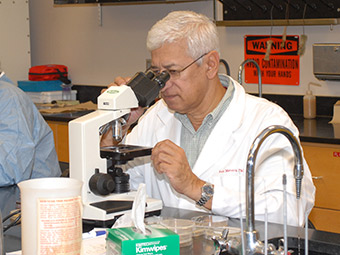Cavity Use by Secondary Cavity-Nesting Birds and Response to Manipulations
Document Type
Article
Publication Date
11-1983
Abstract
I studied secondary cavity-nesting birds in riparian habitat along the lower Colorado River, Arizona, to determine whether the birds were limited by availability of nest sites in relatively undisturbed habitat. Species differed in cavity use on the basis of size and time, and cavities were a limiting factor on only one of three study areas. However, birds were responsive to cavity manipulations. Numbers of breeders decreased after cavities were blocked on a plot with many cavities, while breeders increased on a nest-box plot where few natural cavities were available. Breeding numbers remained stable on an unmanipulated plot, despite increased European Starlings (Sturnus vulgaris). Some cavity-related aggression occurred, but did not affect breeding numbers or success, because alternate nest sites were available.
Recommended Citation
Brush, Timothy. “Cavity Use by Secondary Cavity-Nesting Birds and Response to Manipulations.” The Condor 85, no. 4 (1983): 461–66. https://doi.org/10.2307/1367987
Publication Title
The Condor
DOI
10.2307/1367987



Comments
The Condor © 1983 Oxford University Press